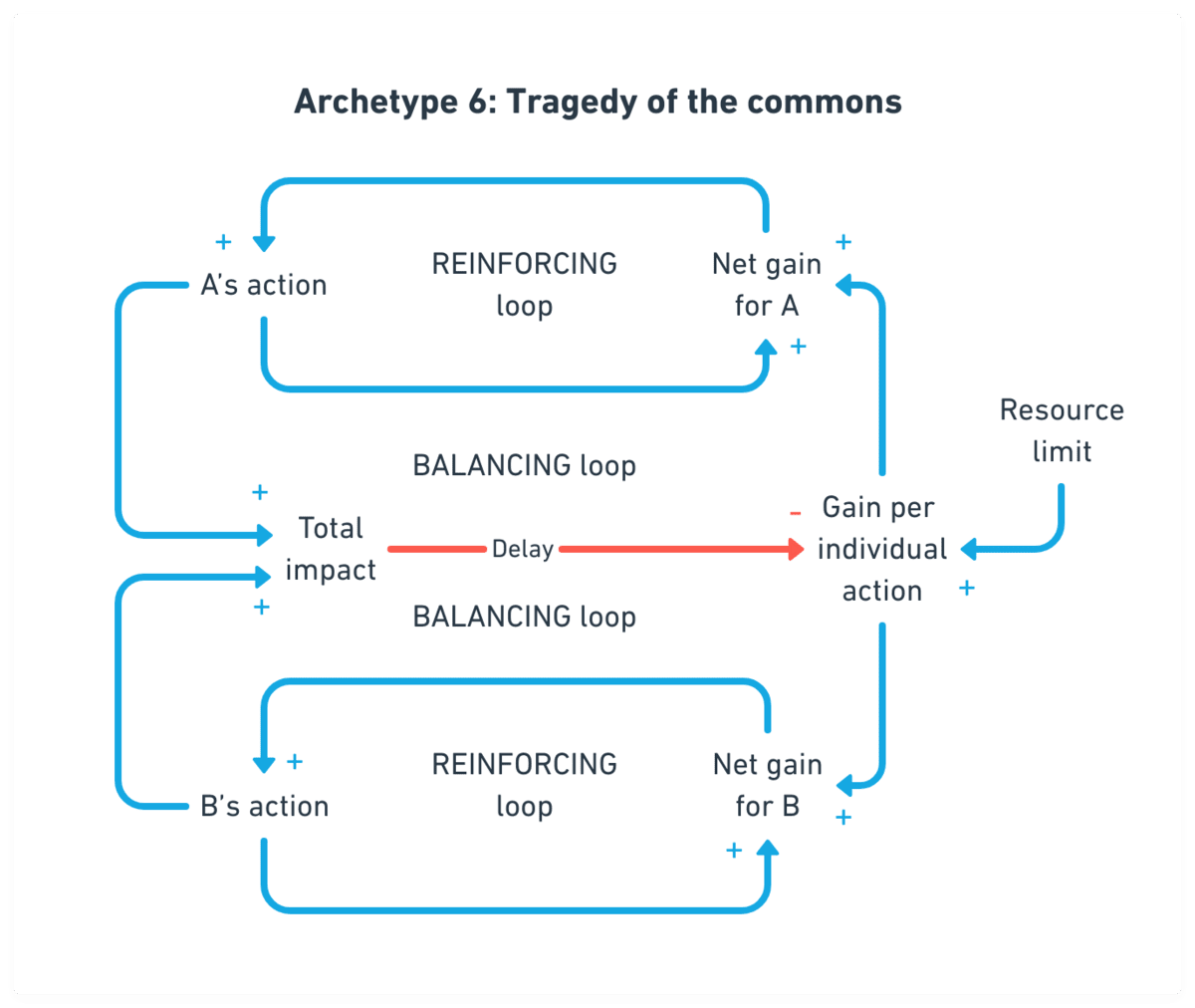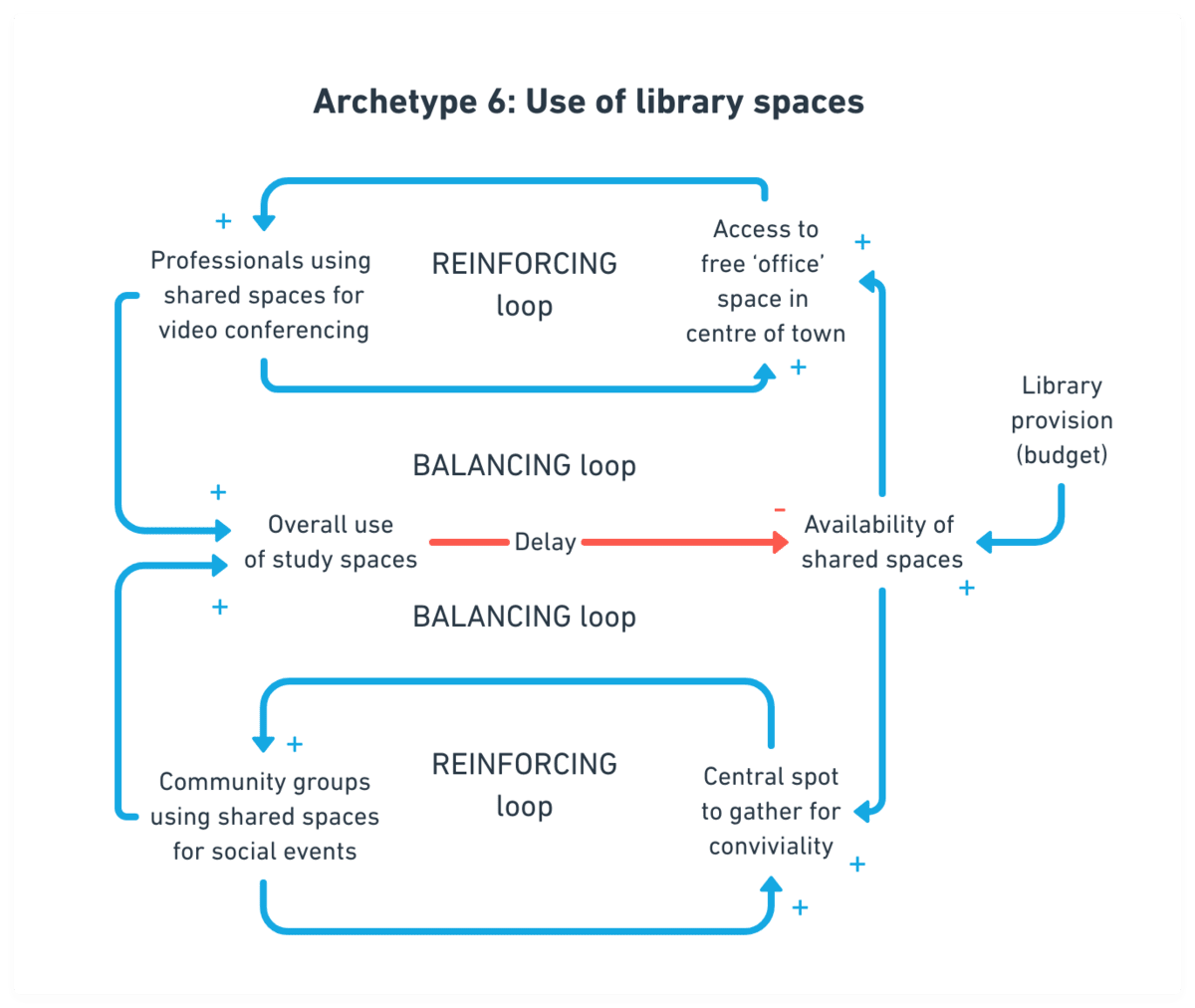TB871: Archetype 6 — Tragedy of the commons
Note: this is a post reflecting on one of the modules of my MSc in Systems Thinking in Practice. You can see all of the related posts in this category.
It’s important to point out that Nobel prizewinner Elinor Ostrom has largely discredited the view of the ‘tragedy of the commons‘ which was proposed by Garrett Hardin, a racist and eugenicist. Unrestricted access to common land is an anachronism, and in situations where people have had shared access, the evidence seems to point to them doing so in relative harmony.
I’m only including this archetype (Activity 2.27) from the point of view of a thought perspective and for the sake of completeness.
The name ‘the tragedy of the commons’ comes from the original example. Imagine two farmers grazing their cattle on common land – land that belongs to all in common. There are no costs attached to the use of the land, so naturally the herd grows for both A and B. This is represented by the two reinforcing loops at the top and bottom. Each of the growing herds has an impact on the common by eating the grass, eventually (the delay) eating it as fast as it grows. At this point any further herd growth by A or B impacts directly on the other and the gain may well turn negative. With no regulation, A and B are forced into competition and the escalation archetype.
(The Open University, 2020)
So the diagram looks like this:

Again, to be clear, what I’m about to show here I don’t think would be a ‘tragedy of the commons’ situation but rather the result of poor planning and implementation of rules for shared spaces.

Reality is, of course, infinitely more complex with additional groups, and dependencies on actions between groups.
References
- The Open University (2020) ‘2.3 SD in practice’, TB871 Block 2 Tools Stream [Online]. Available at https://learn2.open.ac.uk/mod/oucontent/view.php?id=2261481§ion=4.4.6 (Accessed 31 May 2024).
